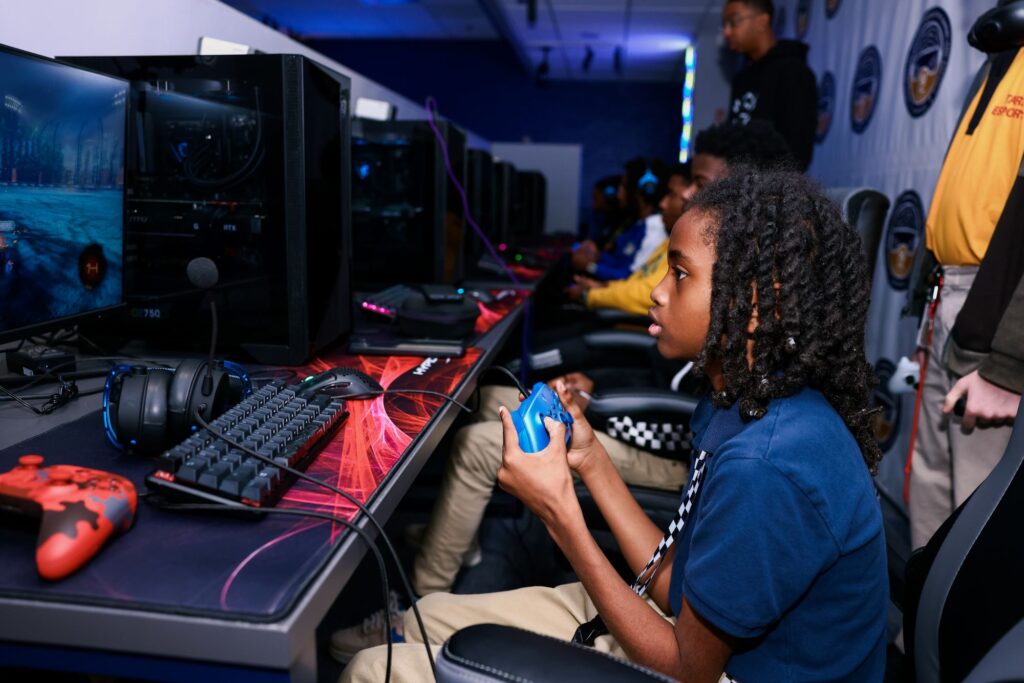
Esports tournaments can be played online or in person, and they often have large prize pools and huge audiences. There are many different types of esports games, but which are appropriate for different age groups?. Some of the most popular esports games include:
First-person shooters
These games involve players controlling a character from a first-person perspective and using a variety of weapons to defeat their opponents. Examples include Call of Duty, Counter Strike: Global Offensive, and Valorant These are typically for more mature audiences. Where as Fortnite, Splatoon, and Overwatch can be more age-appropriate esports.
Sports simulations
These games simulate real-world sports, such as football, basketball, or soccer. Examples include FIFA, Madden, NBA 2K, and Rocket League.
As players get older and more experienced, they may be interested in trying out more challenging esports games, such as first-person shooters or sports simulations.
Strategy games
These games require players to plan and execute strategies in order to defeat their opponents. Examples include Starcraft, Dota 2, and League of Legends.
For younger players, it may be helpful to start with simpler games that involve teamwork and strategy, such as Minecraft or Rocket League. These games can help younger players develop problem-solving skills and teamwork skills, which can be beneficial in both gaming and non-gaming situations.
Examples of Age-Appropriate Esports
It’s important to consider the age appropriateness of esports games, as some games may contain content that is not suitable for younger players. For example, first-person shooters often feature violence and may not be suitable for younger children.
However, there are also many esports games that are suitable for all ages. These games may involve puzzle-solving or teamwork, rather than violence. Examples of age-appropriate esports games include Fortnite, Minecraft, and Rocket League. In addition to considering the content of the game, it’s also important to consider the skill level required to play the game. Some esports games may be more difficult for younger players to pick up and master, while others may be more accessible.
Overall, there are many different types of esports games to choose from, and it’s important to consider the age appropriateness, skill level, and time commitment required before diving into a new game. As with any activity, it’s also important for players to practice good physical and mental health habits while playing esports. This can include taking breaks to stretch, staying hydrated, and setting limits on the amount of time spent playing. With the right precautions and considerations, esports can be a fun and rewarding activity for players of all ages. Whether you’re a seasoned pro or new to the world of competitive gaming, there is an esports game out there for you.

